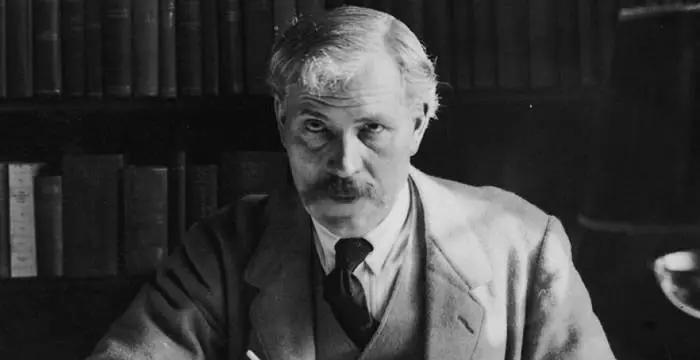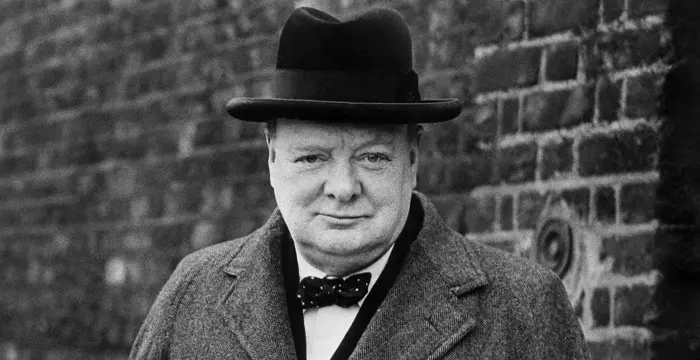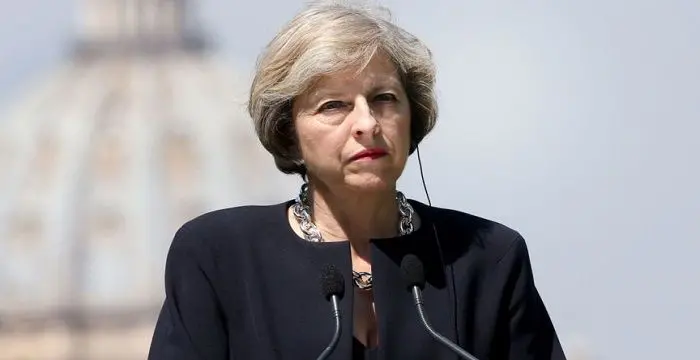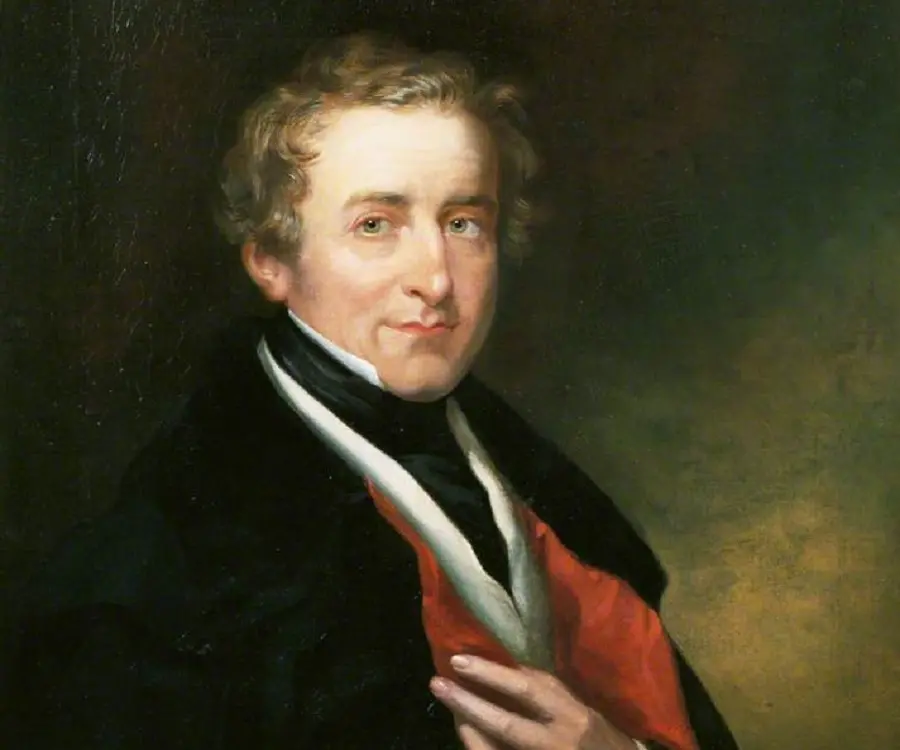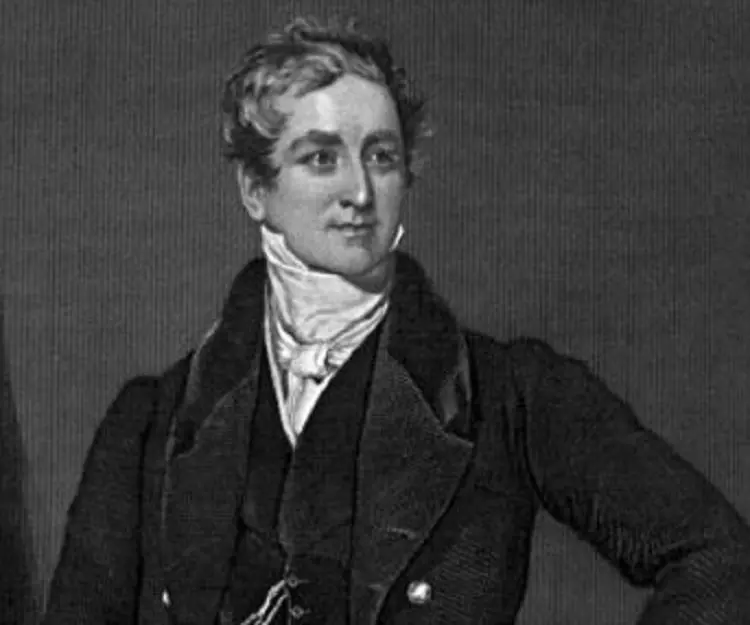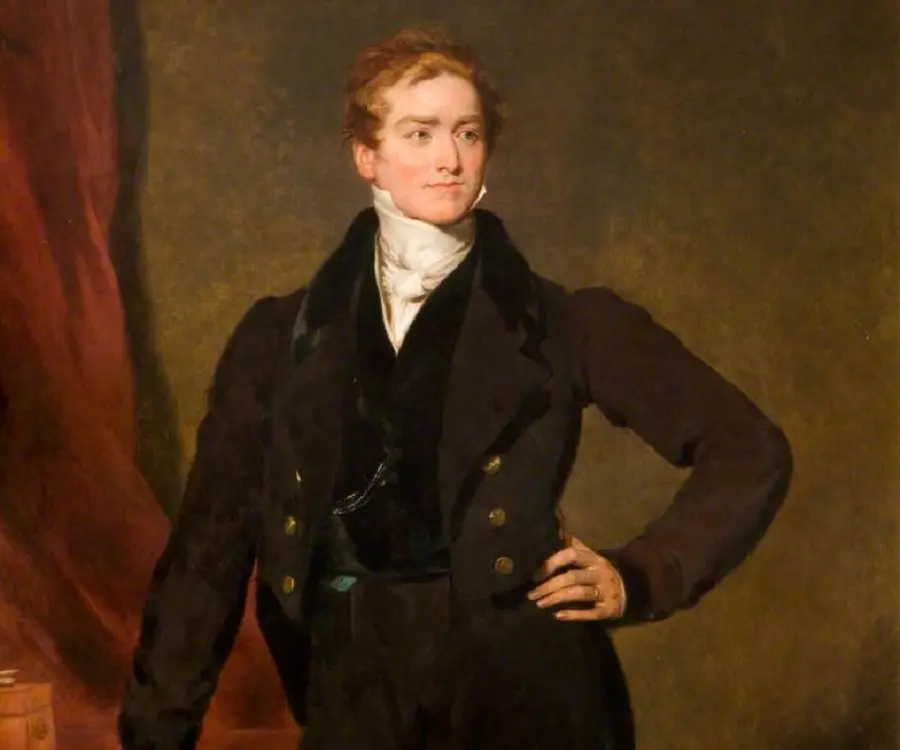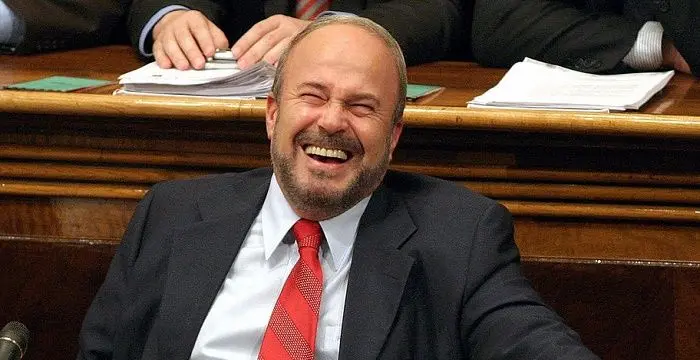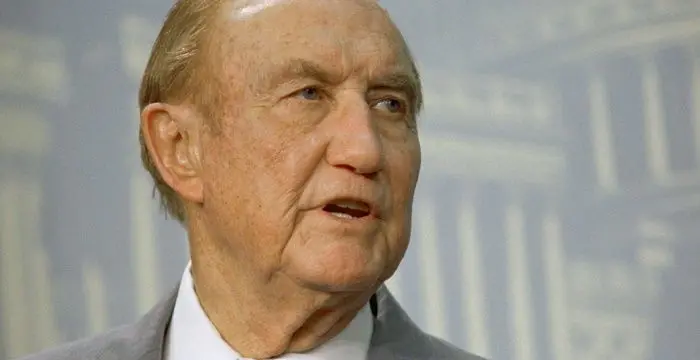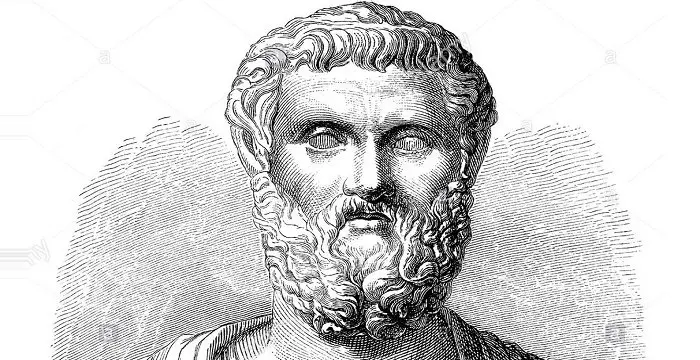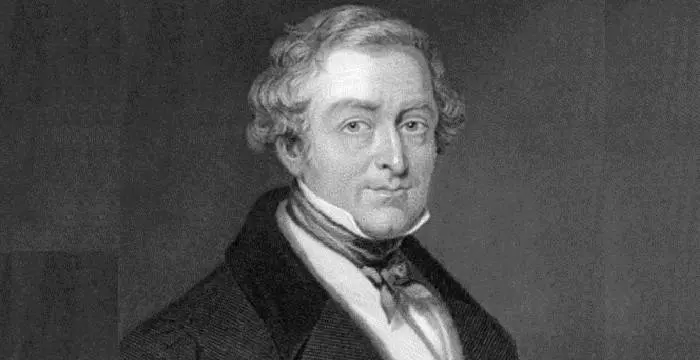
Robert Peel - Prime Minister of the United Kingdom, Career and Childhood
Robert Peel's Personal Details
Sir Robert Peel was an English politician who served twice as the Prime Minister of the United Kingdom and founded the ‘Conservative Party’.
| Information | Detail |
|---|---|
| Birthday | February 5, 1788 |
| Died on | July 2, 1850 |
| Nationality | British |
| Famous | Leaders, Political Leaders, Prime Ministers, Prime Minister of the United Kingdom |
| Siblings | William Yates Peel |
| Known as | Sir Robert Peel |
| Childrens | Eliza Peel |
| Universities |
|
| Founder / Co-Founder |
|
| Cause of death |
|
| Birth Place | Ramsbottom |
| Political Ideology | Political party - Tory/Conservative |
| Religion | Anglicanism |
| Gender | Male |
| Sun Sign | Aquarius |
| Born in | Ramsbottom |
| Famous as | Prime Minister of the United Kingdom |
| Died at Age | 62 |
// Famous Prime Minister of the United Kingdom
Ramsay MacDonald
Ramsay MacDonald was a British politician who went on to become the first Labour Party Prime Minister of Great Britain. This biography of Ramsay McDonald provides detailed information about his childhood, life, achievements, works & timeline
Winston Churchill
Winston Churchill was the Prime Minister of the United Kingdom from 1940 to 1945 and again from 1951 to 1955. This biography of Winston Churchill provides detailed information about his childhood, life, achievements, works & timeline.
Theresa May
Theresa May is the current Prime Minister of the United Kingdom, in office since July 2016. This biography of Theresa May provides detailed information about her childhood, life, achievements, works & timeline.
Robert Peel's photo
Who is Robert Peel?
Sir Robert Peel was an English politician who served twice as the Prime Minister of the United Kingdom and founded the ‘Conservative Party’. Born to a wealthy cotton mill owner, Peel attained his education at Harrow and Oxford, and later entered parliament as a Tory. Initially in his political career, he served as under-secretary for war and colonies, and the chief secretary for Ireland. Later, he became the home secretary and introduced far-ranging criminal law and prison reform as well as laid the foundation of the Metropolitan Police. Following the dismissal of Whig Government of Earl Grey, Sir Robert Peel was appointed as the Prime Minister of England. But, he resigned after a year following the Tories’ minority issue in the House of Commons, a situation which he found increasingly intolerable. Later, Peel returned to the office with a Conservative administration and it was during this government that he oversaw the introduction of significant legislation such as the Mines Act of 1842, and the Factory Act of 1844. Later, he attempted to repeal the Corn Laws which had been introduced to protect British agriculture. Although, the issue caused heated debate in the parliament for months, the Corn Laws were eventually repealed with support from the Whigs and the Radicals. Afterwards, Peel was defeated on another bill and resigned from his post. He never held office again. Several years later, Peel was badly injured in a riding accident and subsequently died in London.
// Famous Prime Ministers
Edi Rama
Edi Rama is the current Prime Minister of Albania. Check out this biography to know about his childhood, life, achievements, works & timeline.
Leo Varadkar
Cam Leo Varadkar is the current Taoiseach—the Prime Minister—of the Republic of Ireland. Check out this biography to know about his childhood, family life, achievements and other facts about his life.
Fatos Nano
Fatos Nano is an Albanian politician who served as Prime Minister of Albania for several times. Check out this biography to know about his childhood, life, achievements, works & timeline.
Childhood & Early Life
Robert Peel was born on February 5, 1788, at Bury, Lancashire, England, to Sir Robert Peel, 1st Baronet, an industrialist and parliamentarian. His father was one of the wealthiest textile manufacturers of the early Industrial Revolution.
Peel received his early education from the Bury Grammar School, then at Harrow School and finally attended the Christ Church, Oxford, where he earned a double first in classics and mathematics.
In 1808, Peel saw part-time military service as a Captain in the Manchester Regiment of Militia. The following year, while studying as a law student at Lincoln's Inn, he entered Parliament with the influence of his father.
Career
At the age of 21, Peel entered politics as a Member of Parliament for the Irish rotten borough of Cashel, Tipperary. The next year, in 1810, Peel joined the government as the under-secretary for war and the colonies.
In 1812, when Lord Liverpool became the Prime Minister, he appointed Peel as the chief secretary for Ireland, a post Peel served for the next six years. As chief secretary, he ushered several reforms including the establishment of a permanent Irish police force and laid the foundations for famine relief.
In 1818, upon his retirement from the post of chief secretary, Peel stayed out of office for several years.
In 1821, Peel was recalled and offered the post of home secretary in Lord Liverpool's government, where he served until 1830.
After the Tory ministry refused to bend on other issues, similar to the ones as the Catholic emancipation, they were swept out of office in 1830 in favor of the Whigs. Thereafter, times were extremely turbulent for his party but eventually Tories were asked by the king to form a ministry again in 1834 and Peel was elected to be the Prime Minister of England.
In 1834, Peel issued the Tamworth Manifesto, laying down the principles upon which the modern British Conservative Party is based. In April 1835, Peel’s government was defeated by a combination of Whigs, radicals, and Irish nationalists, and Peel resigned from his office. During the next six years, with help from his smart and watchful tactics, the Conservative Party steadily increased in numbers and confidence.
In the general election of 1841, the Conservative Party gained a majority in the House of Commons and Sir Robert Peel returned to the office of Prime Minister.
In 1844, his government passed ‘The Factory Act’ which restricted the number of hours that children and women could work in a factory, and setting rudimentary safety standards for machinery.
By 1845, the only unresolved difference in the free trade system was the protection of agriculture afforded by the Corn Laws, which supported agricultural revenues by restricting grain imports. Following the Great Irish Famine, Peel moved against the landholders by repealing the Corn Laws, a decision which split his cabinet and ultimately led to his resignation in 1846.
From 1846 onwards, Peel remained an active and influential leader in politics, dedicating himself to the support of free-trade principles of Whigs government.
Major Works
In the Metropolitan Police Act of 1829, Sir Robert Peel laid the foundations of a modern professional police force. This act established the London police force, whose members were called ‘Peelers’ or ‘Bobbies’, named after him.
The greatest accomplishment of Peel's ministry was the establishment of the principle of free trade. He was also mainly responsible for the repeal of the Corn Laws that had restricted imports, in 1846.
Personal Life & Legacy
In 1820, Sir Robert Peel married Julia Floyd, the youngest daughter of General Sir John Floyd, 1st Baronet. The couple had five sons and two daughters together.
In June 1850, Peel was involved in an accident; he was thrown from his horse while riding on Constitution Hill in London and the horse stumbled on top of him. Three days later, Sir Robert Peel died on July 2, 1950, due to a fracture rupturing his vessels.
// Famous Leaders
Edi Rama
Edi Rama is the current Prime Minister of Albania. Check out this biography to know about his childhood, life, achievements, works & timeline.
Tecumseh
Tecumseh was a Native American leader of the Shawnee clan. This biography profiles his childhood, life and timeline.
Khalifa bin Zayed Al Nahyan
Sheikh Khalifa bin Zayed Al Nahyan is the current President of the United Arab Emirates (UAE). Check out this biography to know about his birthday, childhood, family life, achievements and fun facts about him.
Robert Peel biography timelines
- // 5th Feb 1788Robert Peel was born on February 5, 1788, at Bury, Lancashire, England, to Sir Robert Peel, 1st Baronet, an industrialist and parliamentarian. His father was one of the wealthiest textile manufacturers of the early Industrial Revolution.
- // 1808In 1808, Peel saw part-time military service as a Captain in the Manchester Regiment of Militia. The following year, while studying as a law student at Lincoln's Inn, he entered Parliament with the influence of his father.
- // 1810At the age of 21, Peel entered politics as a Member of Parliament for the Irish rotten borough of Cashel, Tipperary. The next year, in 1810, Peel joined the government as the under-secretary for war and the colonies.
- // 1812In 1812, when Lord Liverpool became the Prime Minister, he appointed Peel as the chief secretary for Ireland, a post Peel served for the next six years. As chief secretary, he ushered several reforms including the establishment of a permanent Irish police force and laid the foundations for famine relief.
- // 1818In 1818, upon his retirement from the post of chief secretary, Peel stayed out of office for several years.
- // 1820In 1820, Sir Robert Peel married Julia Floyd, the youngest daughter of General Sir John Floyd, 1st Baronet. The couple had five sons and two daughters together.
- // 1821 To 1830In 1821, Peel was recalled and offered the post of home secretary in Lord Liverpool's government, where he served until 1830.
- // 1829In the Metropolitan Police Act of 1829, Sir Robert Peel laid the foundations of a modern professional police force. This act established the London police force, whose members were called ‘Peelers’ or ‘Bobbies’, named after him.
- // 1830 To 1834After the Tory ministry refused to bend on other issues, similar to the ones as the Catholic emancipation, they were swept out of office in 1830 in favor of the Whigs. Thereafter, times were extremely turbulent for his party but eventually Tories were asked by the king to form a ministry again in 1834 and Peel was elected to be the Prime Minister of England.
- // 1834 To Apr 1835In 1834, Peel issued the Tamworth Manifesto, laying down the principles upon which the modern British Conservative Party is based. In April 1835, Peel’s government was defeated by a combination of Whigs, radicals, and Irish nationalists, and Peel resigned from his office. During the next six years, with help from his smart and watchful tactics, the Conservative Party steadily increased in numbers and confidence.
- // 1841In the general election of 1841, the Conservative Party gained a majority in the House of Commons and Sir Robert Peel returned to the office of Prime Minister.
- // 1844In 1844, his government passed ‘The Factory Act’ which restricted the number of hours that children and women could work in a factory, and setting rudimentary safety standards for machinery.
- // 1845 To 1846By 1845, the only unresolved difference in the free trade system was the protection of agriculture afforded by the Corn Laws, which supported agricultural revenues by restricting grain imports. Following the Great Irish Famine, Peel moved against the landholders by repealing the Corn Laws, a decision which split his cabinet and ultimately led to his resignation in 1846.
- // 1846From 1846 onwards, Peel remained an active and influential leader in politics, dedicating himself to the support of free-trade principles of Whigs government.
- // 1846The greatest accomplishment of Peel's ministry was the establishment of the principle of free trade. He was also mainly responsible for the repeal of the Corn Laws that had restricted imports, in 1846.
- // Jun 1850 To 2nd Jul 1950In June 1850, Peel was involved in an accident; he was thrown from his horse while riding on Constitution Hill in London and the horse stumbled on top of him. Three days later, Sir Robert Peel died on July 2, 1950, due to a fracture rupturing his vessels.
// Famous Political Leaders
Edi Rama
Edi Rama is the current Prime Minister of Albania. Check out this biography to know about his childhood, life, achievements, works & timeline.
Khalifa bin Zayed Al Nahyan
Sheikh Khalifa bin Zayed Al Nahyan is the current President of the United Arab Emirates (UAE). Check out this biography to know about his birthday, childhood, family life, achievements and fun facts about him.
Leo Varadkar
Cam Leo Varadkar is the current Taoiseach—the Prime Minister—of the Republic of Ireland. Check out this biography to know about his childhood, family life, achievements and other facts about his life.
Strom Thurmond
Strom Thurmond was an American politician, who represented the state of South Carolina in the United States senate for 48 years.
Solon
Solon was an Athenian lawmaker, poet and politician. He is considered as one of the ‘Seven Wise Men’ in Greek culture. This biography provides detailed information about his childhood, life, career, works, achievements and timeline.
Mohammed bin Salman
Mohammed bin Salman is the Crown Prince of Saudi Arabia and the heir apparent to the throne. Check out this biography to know about his childhood, family life, achievements and other facts about him.
Robert Peel's FAQ
What is Robert Peel birthday?
Robert Peel was born at 1788-02-05
When was Robert Peel died?
Robert Peel was died at 1850-07-02
Where was Robert Peel died?
Robert Peel was died in Westminster
Which age was Robert Peel died?
Robert Peel was died at age 62
Where is Robert Peel's birth place?
Robert Peel was born in Ramsbottom
What is Robert Peel nationalities?
Robert Peel's nationalities is British
Who is Robert Peel siblings?
Robert Peel's siblings is William Yates Peel
Who is Robert Peel childrens?
Robert Peel's childrens is Eliza Peel
What was Robert Peel universities?
Robert Peel studied at Christ Church, Oxford, Harrow School, Hipperholme Grammar School, University of Oxford
Which company or organization was founded by Robert Peel?
Robert Peel was the founder/co-founder of Metropolitan Police Service
What is Robert Peel's cause of dead?
Robert Peel dead because of Accident
What is Robert Peel's political ideology?
Robert Peel's political ideology is Political party - Tory/Conservative
What is Robert Peel's religion?
Robert Peel's religion is Anglicanism
What is Robert Peel's sun sign?
Robert Peel is Aquarius
How famous is Robert Peel?
Robert Peel is famouse as Prime Minister of the United Kingdom
